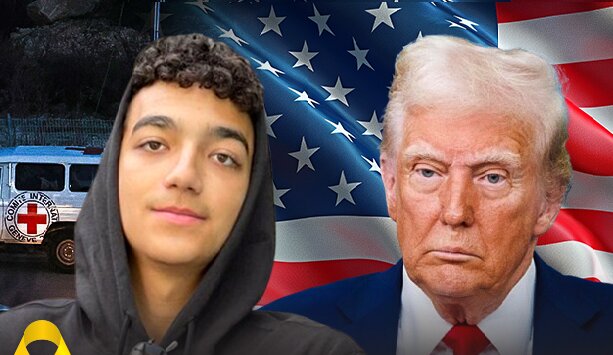Hamas approached pro-Trump activist for secret talks that freed Edan Alexander

Backchannel talks leading to the release of Edan Alexander, the last American held in Gaza, began with a message from a Hamas official to Bishara Bahbah, former leader of "Arab Americans for Trump," according to Israeli, Palestinian, and U.S. officials speaking to Axios.
Hamas sought to persuade President Trump to increase pressure on Israel, while Trump's team was focused on securing Alexander's freedom. Bahbah, a Palestinian-American businessman who aided Trump in engaging Arab voters during the 2024 campaign, emerged as an unlikely intermediary.
The dialogue started in late April when a Hamas official outside Gaza contacted Bahbah to initiate communication with Trump envoy Steve Witkoff. Although slow to gain traction, the backchannel intensified last week, with around 20 messages exchanged via calls and texts to Bahbah, who also spoke directly with Hamas chief negotiator Khalil al-Hayya. Witkoff, supported by Qatari officials and Bahbah, convinced Hamas that releasing Alexander without conditions would significantly influence Trump.
At approximately 10 pm Doha time on Sunday, Hamas formally agreed to release Alexander. Witkoff then informed Alexander’s parents of the long-awaited news, marking an emotional moment for both sides. Israeli officials learned of these secret talks through their intelligence services rather than from the White House. When Israeli Prime Minister Netanyahu’s aide Ron Dermer visited Washington, U.S. counterparts did not disclose the backchannel, prompting Dermer to raise the issue himself. Witkoff confirmed the talks but emphasized that Israel would not have to make concessions and that Hamas had not yet agreed to the release.
Earlier attempts to negotiate Alexander’s release included unprecedented direct talks in March between Trump’s hostage envoy Adam Boehler and Hamas leaders in Qatar. Those talks, which Hamas linked to a demand for the release of 250 prisoners held by Israel, collapsed hours before Trump’s State of the Union address. Trump’s advisers suspect that aides to Netanyahu leaked the talks to the press to undermine the deal. Witkoff later proposed a plan for Hamas to release Alexander if Trump publicly called for a temporary ceasefire and broader negotiations, but Hamas rejected this.
Meanwhile, Israel escalated its military operations in Gaza, increasing ground incursions, airstrikes, and blocking humanitarian aid. On April 22, Qatari Prime Minister Mohammed bin Abdul Rahman al-Thani met with Trump and Witkoff at the White House, presenting a Hamas-backed proposal for a comprehensive hostage release and war-ending deal. The U.S. preferred a shorter, partial agreement. Returning to Doha, al-Thani relayed this to Hamas and encouraged a goodwill gesture toward Trump, leading to the outreach to Bahbah.
On Sunday, while negotiating with Iran’s foreign minister in Muscat, Witkoff also coordinated with Qatar’s prime minister to finalize the deal. According to a Palestinian official, the Trump administration offered Hamas a 70 to 90-day ceasefire and the start of final negotiations in exchange for releasing Alexander and 10 other hostages, with guarantees from the U.S., Qatar, and Egypt that the war would not resume during the ceasefire. The U.S. has not confirmed these details.
Following Hamas’s agreement, Witkoff informed Netanyahu, Dermer, and Alexander’s family. A senior U.S. official credited the Qatari prime minister’s role in persuading Hamas and acknowledged Netanyahu’s military campaign as instrumental, while downplaying Bahbah’s involvement as tangential.
In a Monday call, Trump did not press Netanyahu to halt the war or cancel a planned major ground operation in Gaza. Israeli officials noted that Hamas gained no commitments from Trump; their hope to sway him toward their side did not materialize. Hamas took a calculated risk, accepting limited gains in U.S. sympathy and public statements from Trump.
Looking ahead, Witkoff and Israeli negotiators are set to travel to Doha to resume talks on a broader Gaza ceasefire and hostage deal. Israeli officials remain skeptical about a breakthrough, warning Witkoff he has four days to secure a deal before a new military offensive begins.
Leave a Comment